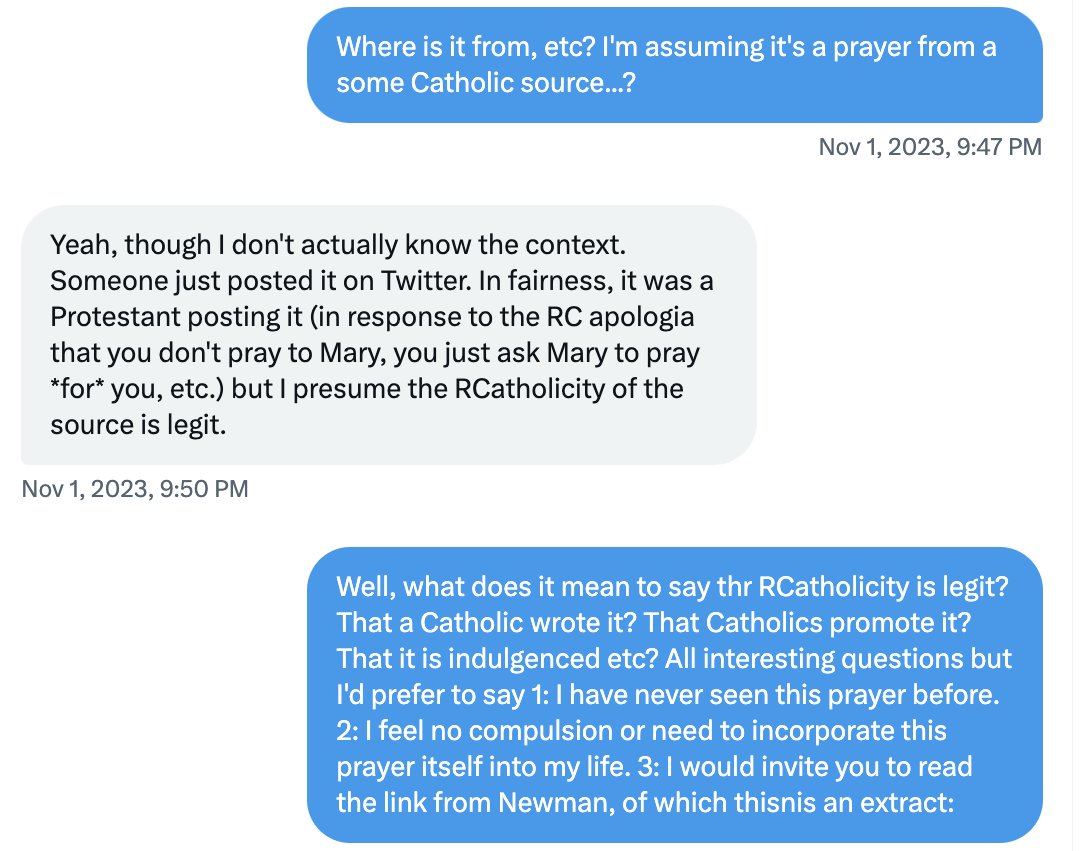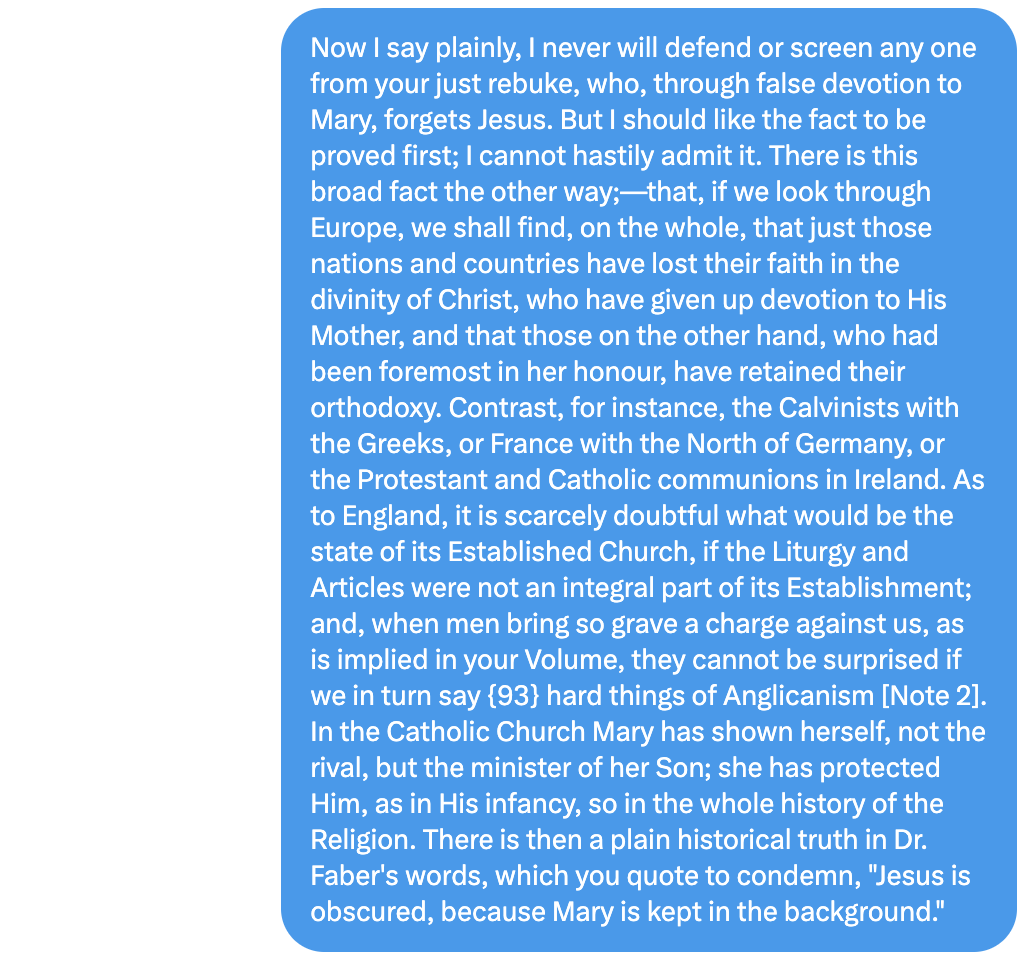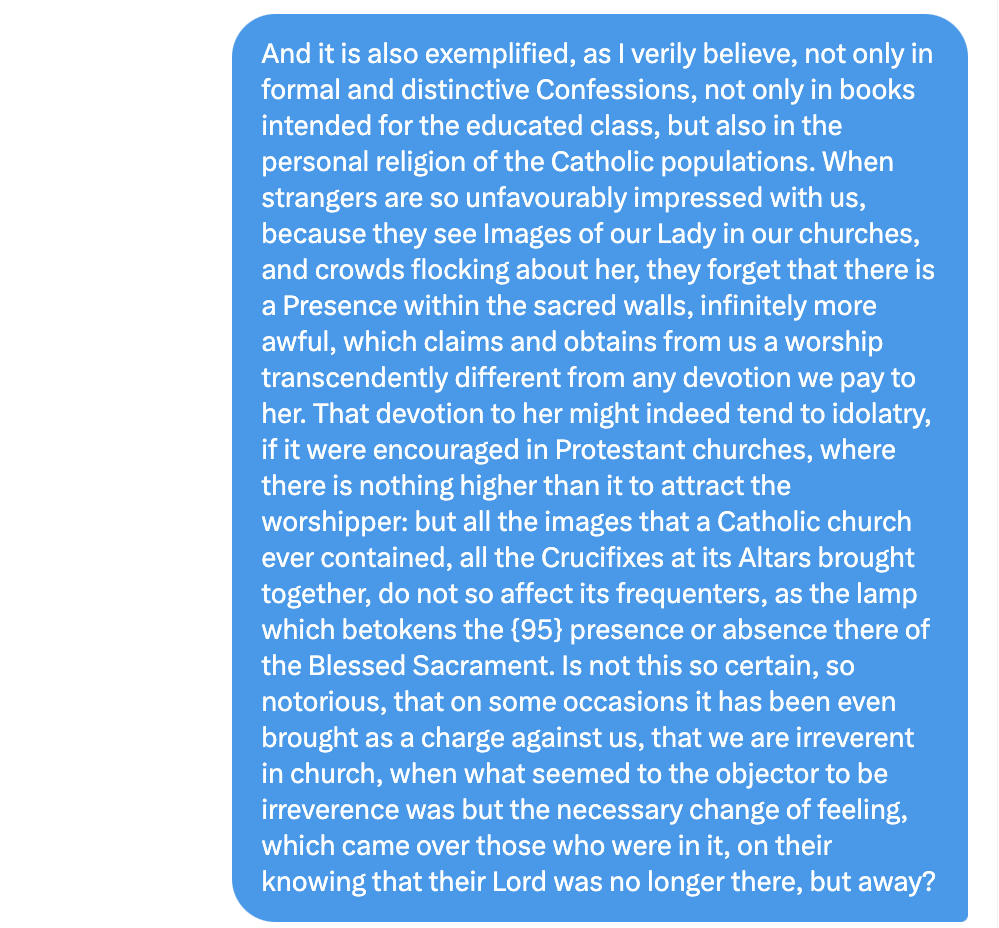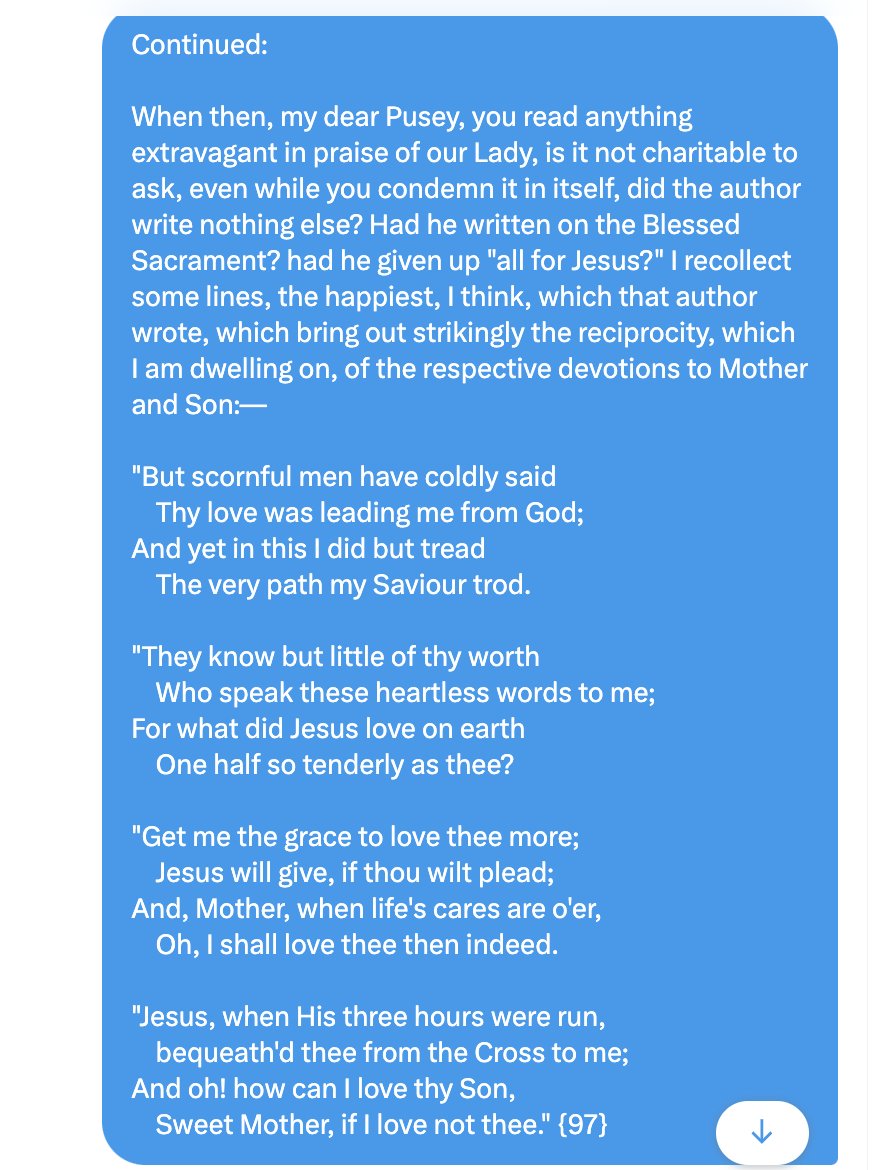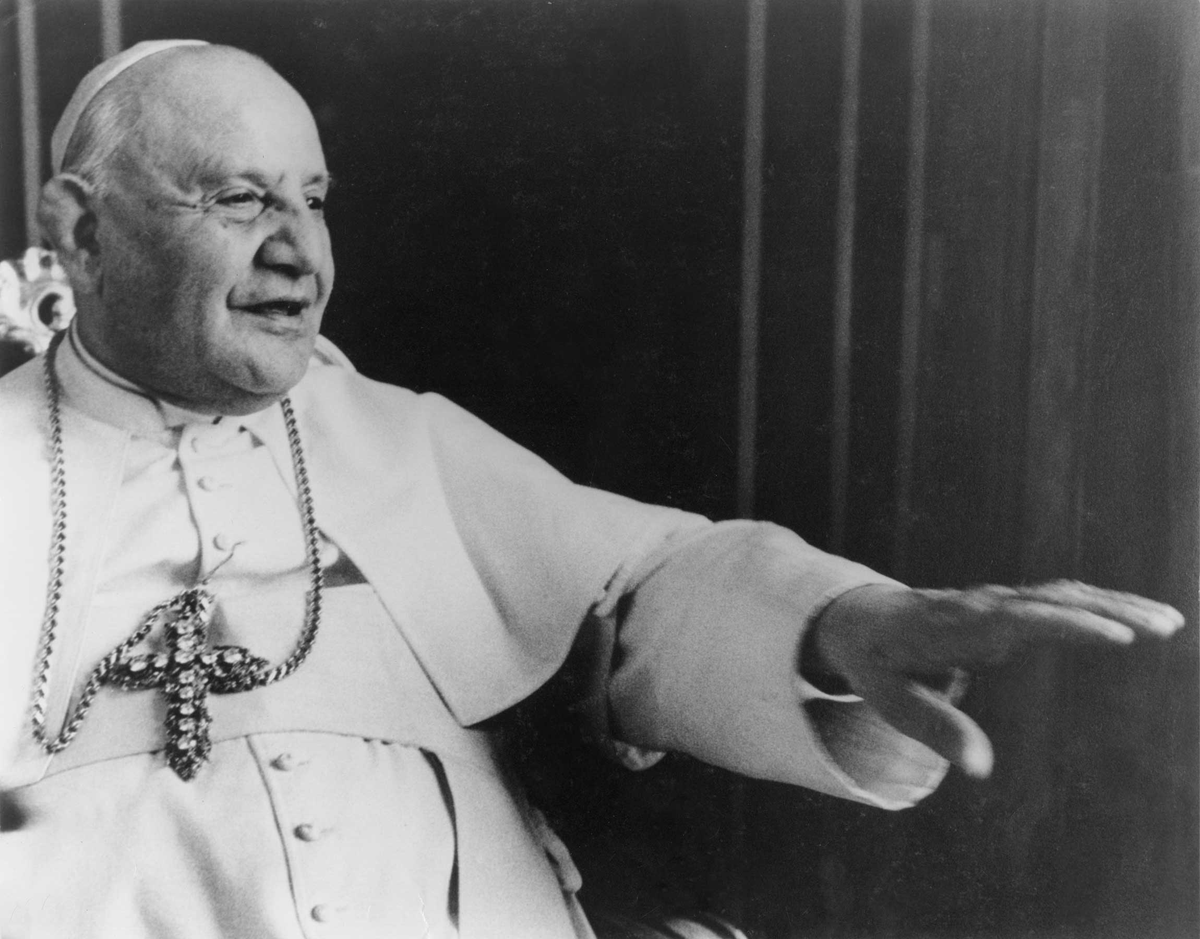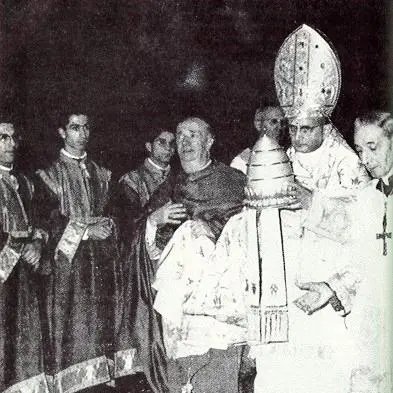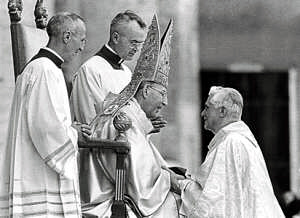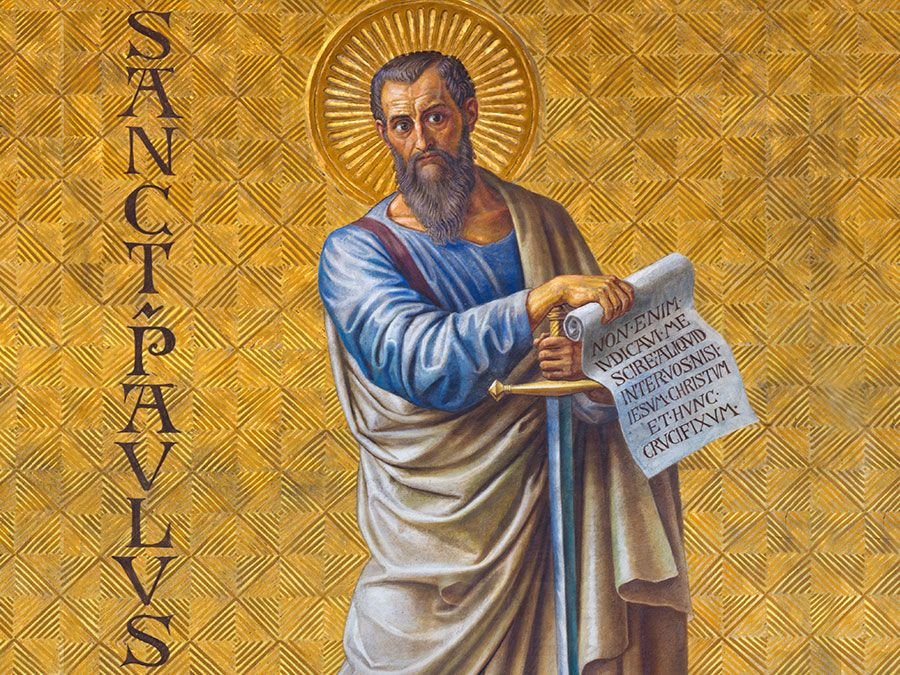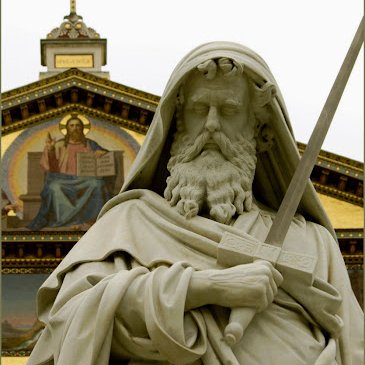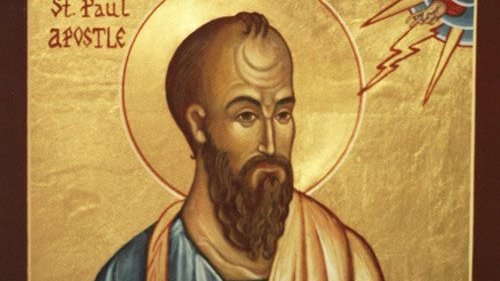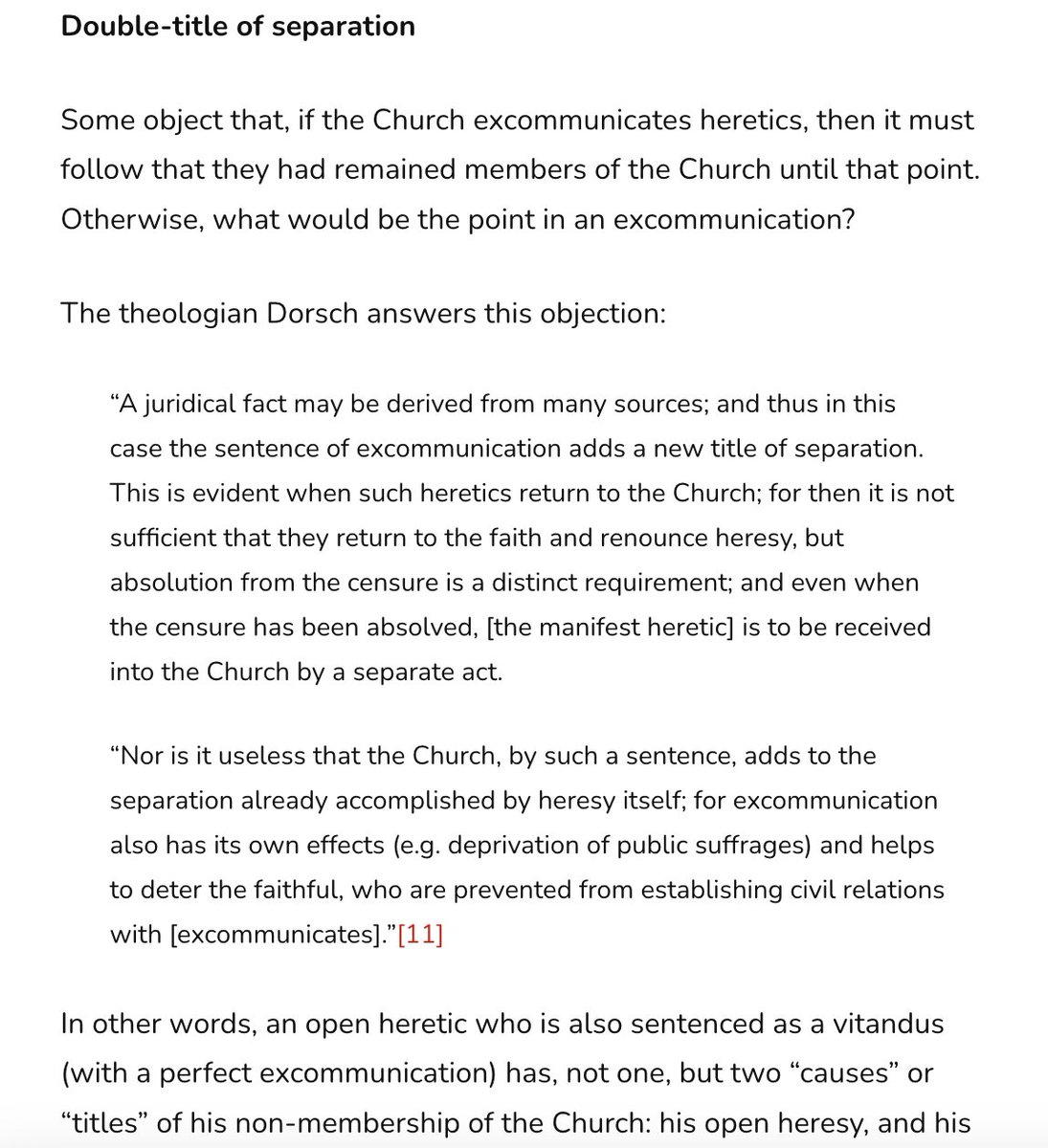🧵Some comments:
1. Before all else, as said before, new converts like @langluigi_ (whether to EO or RC or anything )shouldn't set themselves up as online religious influencers. It's an absolutely incredible phenomenon.
2. There are some questions to be asked here. Let's go...
1. Before all else, as said before, new converts like @langluigi_ (whether to EO or RC or anything )shouldn't set themselves up as online religious influencers. It's an absolutely incredible phenomenon.
2. There are some questions to be asked here. Let's go...
https://twitter.com/langluigi_/status/1756488156084613230
Cont, From Newman's Letter to Pusey.
Note that while we're not taking any judgment or position on a particular Novena prayer randomly shared by a catechumen or recent convert to the Eastern schism, we're perfectly capable of admitting the below.
wmreview.co.uk/2022/10/13/ull…

Note that while we're not taking any judgment or position on a particular Novena prayer randomly shared by a catechumen or recent convert to the Eastern schism, we're perfectly capable of admitting the below.
wmreview.co.uk/2022/10/13/ull…
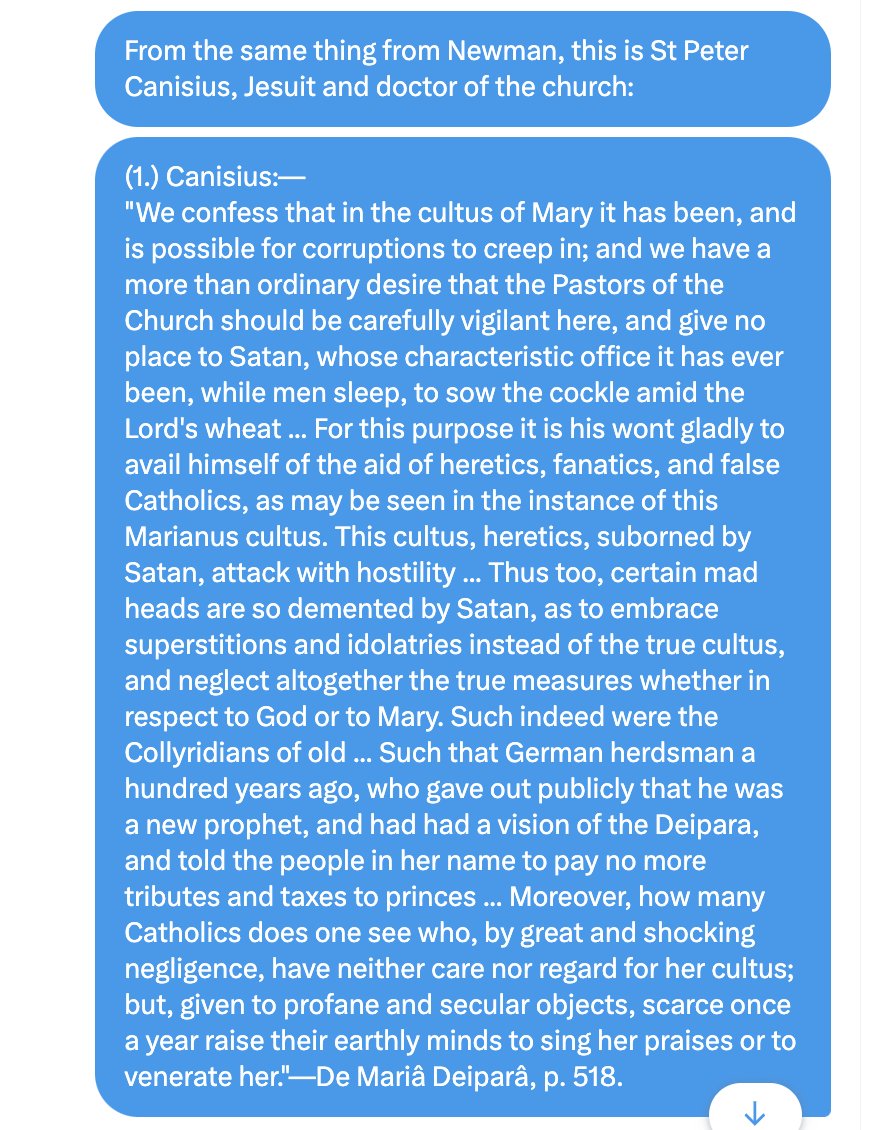
3. RE hard words to @langluigi_ about setting himself up as a religious influencer: no offence or ill-will is meant.
As I said before: Let's see how EO works out for you, and if you stick with it. Then your words might have some value on these matters.
wmreview.co.uk/2022/10/27/sho…
As I said before: Let's see how EO works out for you, and if you stick with it. Then your words might have some value on these matters.
wmreview.co.uk/2022/10/27/sho…
• • •
Missing some Tweet in this thread? You can try to
force a refresh

